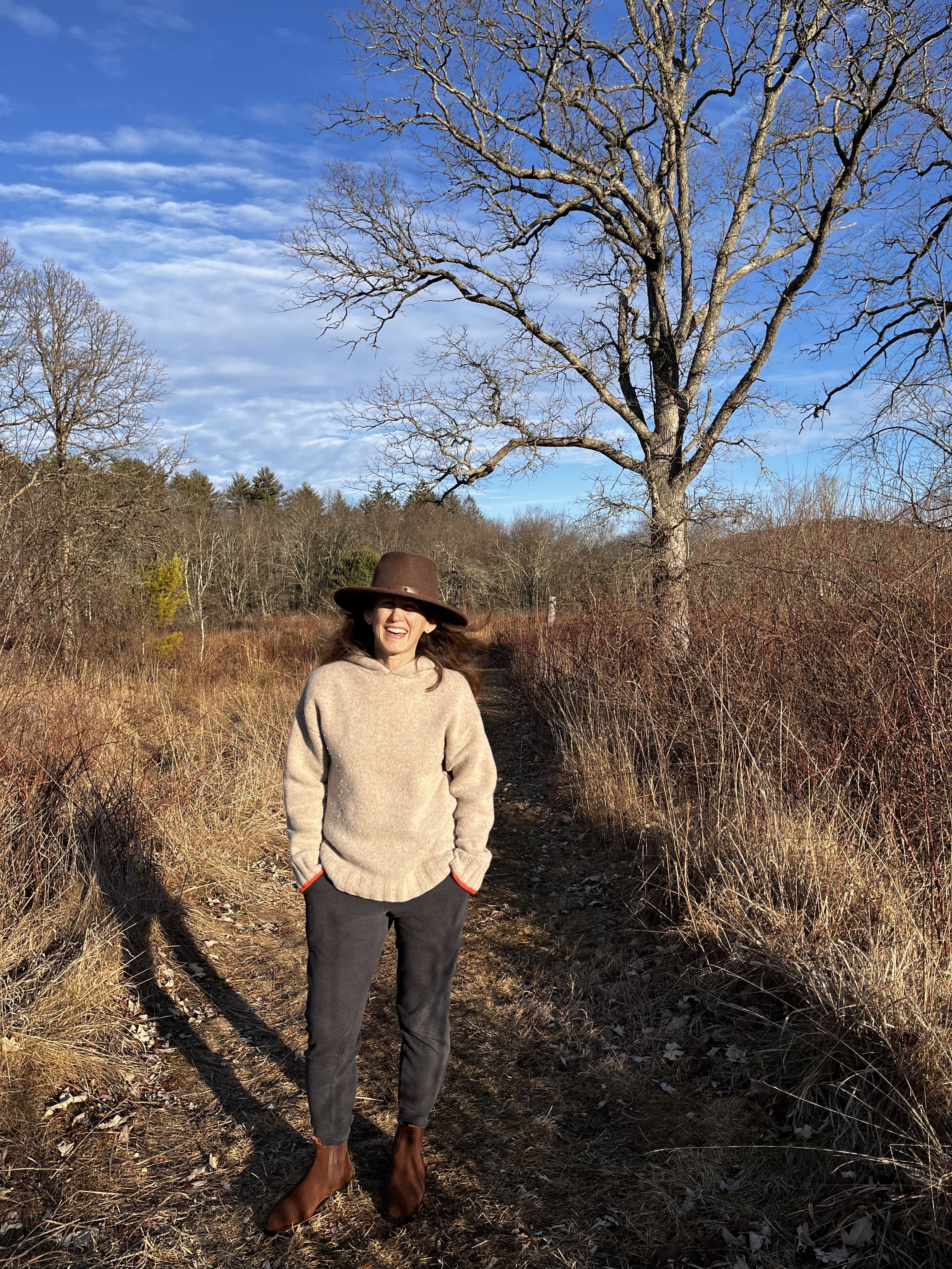Stepping Out in the Cold?
When the weather turns snowy and cold do you find yourself curling up on a couch, remote in one hand, warm drink in the other? You’re not alone. What would it take to get you outside?
I’ll take a cold, snowy winter day over a steamy summer one every time. Even so, it’s not always easy to leave the comforts of a heated home and brave the outdoors. It’s also not a great idea for some with certain medical conditions (more on that below). So why do it if you don’t have to?
Being outdoors in the cold weather has its advantages. For me, there’s nothing more mind clearing than stepping outside and taking a deep inhale of cold air. Totally invigorating!
Stepping out in the cold helps your metabolism gets kicked into high gear as your body seeks warmth, which means you may burn more calories and more fat. Research shows that you burn what’s called white fat, which is the fat we don’t want too much of.
Exposure to cold turns white fat into the healthier brown fat which increases the body’s use of glucose and fatty acids to produce heat and keep your body warm. Those who are overweight or have Type 2 Diabetes might benefit here.
Studies have found that getting outside in the cold has a positive effect on your immune system too. It’s been observed that the immune system gets stronger and more able to fight infection after adapting to cold exposure.
Want a mood booster? Get a blast of fresh cold air and notice how it invigorates your body and mind. Studies show that just a few minutes a day can really improve your mood. Playing in the snow isn’t just for kids!
If you have a healthy heart and want to keep it strong, getting your body moving outdoors in the cold can be a great way to do just that. Your heart works a bit harder to keep your blood moving and there’s a bigger demand for oxygen as cold air gets inhaled.
That said, if you have a heart or lung condition exercising outside may not be for you. So use extreme caution before exerting yourself outdoors in cold weather if you suffer from heart disease, asthma, or any other heart and respiratory conditions.
If you choose to get outdoors and brave the cold be sure to think about the following:
Hydrate, hydrate, hydrate! Keeping your body hydrated in winter is just as important as in the summer. Without proper amounts of water, your body will not be able to warm itself properly and maintain a healthy regulated temperature which can lead to other complications. Remember that alcohol and caffeine can be dehydrating, so drink cautiously.
Dress warmly by layering your body with the right kind of clothing. Start with a good wool sock and winter boots, a thermal layer of wool or a moisture wicking fabric, a warm sweater or fleece pullover and a warm winter jacket. You may consider water repellent/proof pants if you plan on jumping in the snow or walking in cold, rainy weather. Don’t forget a good hat to keep the heat in and gloves for those delicate fingers! Use good common sense.
Check the temperature and wind conditions before heading out. Hypothermia and frost bite are a real thing and you don’t want to suffer needlessly from them. So enjoy the cold weather when the temperature is not below freezing point, especially if you are new to outdoor adventure.
Increase your time outdoors slowly. If you are not used to being outdoors in the cold weather, take it slow and keep it short. Short walks can be just as rewarding. This way you’ll give your body the time it needs to adapt to changes in temperature gradually.
Know the ground conditions. If it’s slick and icy out there, think again. When there is snow or the remains of snow, be sure that ice doesn’t lie below the fresh covering of snowfall. Taking a snowy or snowless walk can be a magical experience as the winter light weaves through the landscape, just know what lies underfoot.
Whether you choose to get outdoors or not is your choice, but keep your body moving, regardless. Don’t let the winter weather keep you from staying active whether that means dancing around your living room or getting outside for a walk. Remember that movement is great medicine for optimal health and a long happy life.
Philip A. Kern, Brian S. Finlin, Beibei Zhu, Neda Rasouli, Robert E. McGehee, Jr, Philip M. Westgate, Esther E. Dupont-Versteegden, The Effects of Temperature and Seasons on Subcutaneous White Adipose Tissue in Humans: Evidence for Thermogenic Gene Induction, The Journal of Clinical Endocrinology & Metabolism, Volume 99, Issue 12, December 2014, Pages E2772–E2779, https://doi.org/10.1210/jc.2014-2440
Peres Valgas da Silva C, Hernández-Saavedra D, White JD, Stanford KI. Cold and Exercise: Therapeutic Tools to Activate Brown Adipose Tissue and Combat Obesity. Biology. 2019; 8(1):9. https://www.ncbi.nlm.nih.gov/pmc/articles/PMC6466122/
Janský L, Pospísilová D, Honzová S, Ulicný B, Srámek P, Zeman V, Kamínková J. Immune system of cold-exposed and cold-adapted humans. Eur J Appl Physiol Occup Physiol. 1996;72(5-6):445-50. doi: 10.1007/BF00242274. PMID: 8925815.
https://www.health.harvard.edu/heart-health/avoiding-winter-heart-attacks





